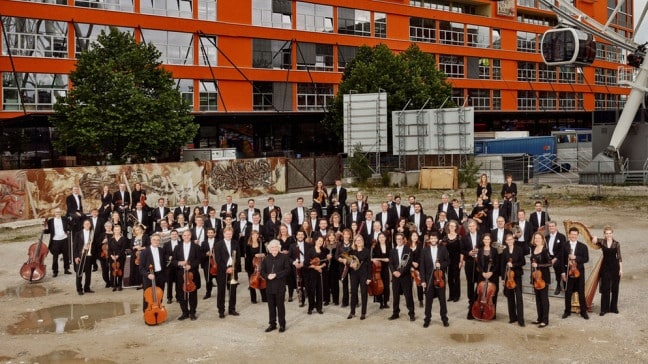The lark ascending… 99… 100
mainpress release:
English Sinfonia musicians will celebrate the 100th anniversary of Vaughan Williams’ The Lark Ascending with two performances at St John’s Smith Square on 15 December 2020, 100 years to the day since the work’s first public performance on 15 December 1920. The original 1920 performance featured British violinist Marie Hall, accompanied on the piano by Geoffrey Mendham (the work was later orchestrated by Vaughan Williams). In this 100th anniversary performance, English Sinfonia’s leader and Artistic Director Janice Graham will be accompanied on the piano by Chris Hopkins, the ensemble’s newly-appointed Principal Conductor.
The piece has a particular personal connection to Graham, through the celebrated violinist Frederick Grinke, who taught Graham and also both of her parents. Grinke was one of the early exponents of The Lark Ascending and had a close and enduring relationship with Vaughan Williams, including being the dedicatee of Vaughan Williams’ Violin Sonata in A minor. Grinke was born in Winnipeg, as was Graham’s father who was invited to study with Grinke at the Royal Academy of Music. Graham recalls her time studying with Grinke and the emphasis he placed on creating a ‘special magical Janice Graham sound’. Graham comments, “I still have a copy of Grinke’s score of the Lark, including his note of Vaughan Williams’ instruction at the top of the page – that ‘It mustn’t sound like a nightingale’”.






The Lark Ascending seems to stand, rightly or not, as a sort of surrogate for how people feel about RVW’s music in general – either loving it or dismissing it, each with vigor — even though contrary to his detractors RVW was hardly confined or limited to writing such peaceful and pastorale — dare I say “static” — music and only now and then returned to the style himself, most notably (in my view) in the violin solo featured in “Elihu’s dance” in Job, A Masque for Dancing.
I myself as you can see am on the “loving it” side of the coin; the recording I basically grew up with and still like best is that of Hugh Bean, although the local classical radio station in my youth mostly played Oscar Chaussow’s and Raphael Druian’s recordings so I had plenty of chances to hear those as well. There is also a very nice recording by Zina Schiff out there but somehow I always end up preferring Hugh Bean.
Unfortunately when I brought the sheet music to my violin teacher I soon learned that he was very much on the “hating it/hating RVW” side — there were exaggerated “stage yawns” when he saw the composer’s name on the cover — and while he penciled in a few suggested fingerings, and very rightly scolded me that I had been listening to far too many recordings and for study purposes needed to actually pay at least a little token attention to the bar lines and note values before I myself would be ready to drop any silver chains of sound. But after one more lesson on it I was instructed to bring something – anything – else. And to his credit he did willingly work with me years later on the first violin part to Vaughn Williams’s Symphony No. 5 when I had a chance to play that, and very much needed the help.
The title is suggestive, perhaps inspired by Shakespeare’s famous sonnet “When in disgrace with fortune and men’s eyes”, ending “then my heart, / like to the lark. at break of day arising / sings hymns at Heaven’s gate. / For thy sweet love remembered suich wealth brings / That then I scorn to change my state with kings.”
The lines’ rhythm suggests the lark’s flight. I can’t account for changing arising to ascending. The association may be a coincidence.
The inspiration was the poem by George Meredith of the same title
https://www.bartleby.com/246/680.html